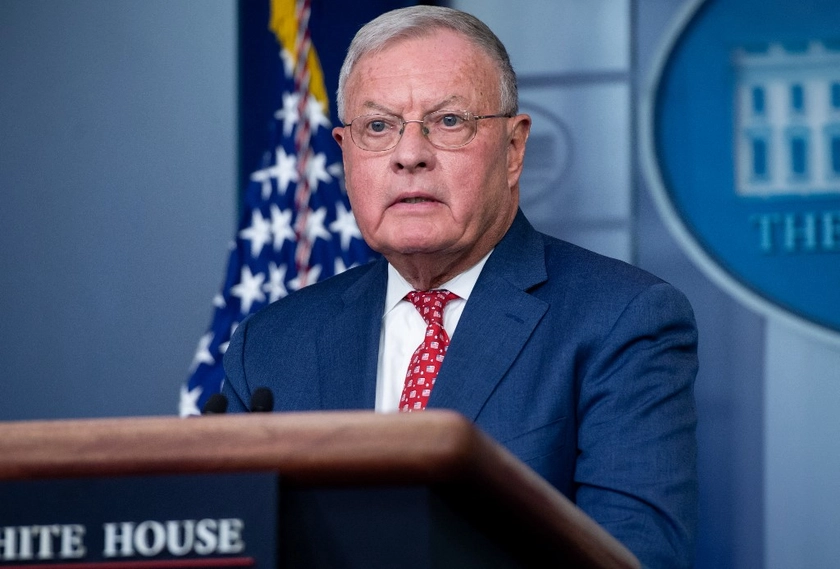Key Takeaways
- Russian President Vladimir Putin issued two decrees in a reported effort to assist stateless peoples and residents of Donbas and Ukraine live and work in the Russian Federation.
- Russian forces conducted unsuccessful offensive operations northwest of Slovyansk.
- Russian forces conducted limited ground attacks southeast of Bakhmut and west and southwest of Donetsk City.
- Russian forces conducted a limited ground attack north of Kharkiv City.
- Russian forces did not conduct any reported offensive operations in Kherson or Zaporizhzhia Oblasts.
- The Kremlin likely directed a media outlet closely affiliated with Moscow to criticize the Governor of St. Petersburg Alexander Beglov for failing to incentivize recruitment to volunteer battalions within the city.
- Russian occupation authorities continued efforts to facilitate the integration of the education system in occupied territories in Ukraine according to Russian standards.
Russian President Vladimir Putin signed two decrees on August 27 in a reported effort to assist stateless peoples and residents of Donbas and Ukraine live and work in the Russian Federation. The first decree allows Donbas residents, Ukrainians, and stateless peoples to live and work in Russia indefinitely.[1] The decree also allows Ukrainian and Donbas residents to work in Russia without a permit so long as they have acquired an identification card within 30 days of the August 27 decree.[2] The order also requires that all Donbas and Ukrainian residents arriving to Russia undergo mandatory fingerprint registration and a medical examination for the use of drugs, psychotropic substances, infectious diseases, and HIV.[3]
JOIN US ON TELEGRAM
Follow our coverage of the war on the @Kyivpost_official.
The second decree orders Russian social services to provide social payments to individuals forced to leave Ukraine and the self-proclaimed Donetsk and Luhansk People’s Republic (DNR and LNR) for Russia after February 18, 2022.[4] The decree mandates that social services provide monthly pension payments of 10,000 rubles (approximately $167) to all affected peoples, pension payments of 3,000 rubles (approximately $50) to those with disabilities or those over the age of 80, and payments of 5,000 rubles (approximately $83) to World War II veterans.[5] The decree also orders that social services pay pregnant women 10,000 rubles during pregnancy and an additional 20,000 rubles (approximately $332) when the child is born.[6] The decree excludes refugees and specifies that Russian Federal Republics must execute the payments to the parties.[7]

Macron Warns of ‘New Era’ as US Backtracks from EU, Ukraine
Russian and Ukrainian forces continued to trade claims of shelling at the Zaporizhzhia Nuclear Power Plant, including at the Tenth Review Conference of the Treaty on the Non-Proliferation of Nuclear Weapons.[8] Russia blocked a proposal aimed at strengthening the Treaty on the Non-Proliferation of Nuclear Weapons on August 27 in objection to a clause concerning Ukrainian control of the Zaporizhzhia Nuclear Power Plant.[9] The Ukrainian Mission to the United Nations published a statement signed by a large proportion of NPT signatories at the last meeting of the conference that condemned Russian aggression in Ukraine, nuclear rhetoric, and provocative statements as “inconsistent with the recent P5 Leaders Joint Statement on Preventing Nuclear War and Avoiding Arms Races.”[10]
Russia has further begun to implement strategies similar to those used by Iran in attempt to manipulate and possibly delay an International Atomic Energy Agency (IAEA) mission to the plant in the near future. The New York Times reported on August 27 that the IAEA had assembled a mission consisting of IAEA Chief Rafael Mariano Grossi and 13 experts from “mostly neutral countries” to visit Zaporizhzhia Nuclear Power Plant for observation next week.[11] The list notably excludes the United States and the United Kingdom, which Russia views as unfairly biased. The IAEA stated that the IAEA remained in active consultations for an upcoming mission.[12] Ukrainian official sources have reported that Russian special forces are torturing Zaporizhzhia Nuclear Power Plant employees to prevent them from disclosing safety violations to IAEA inspectors, that Russian authorities are attempting to limit the presence of Ukrainian employees at the plant, and that occupation authorities have begun collecting signatures from Enerhodar residents demanding an end to Ukrainian shelling to present to inspectors.[13] Manipulation of the nationality of inspectors and attacks on the “fairness” of IAEA inspections are tactics that Iran has long used to obfuscate its obstruction of IAEA inspections.
Authors: Kateryna Stepanenko, Layne Philipson, Angela Howard, and Frederick W. Kagan
See the full report here.
You can also highlight the text and press Ctrl + Enter











